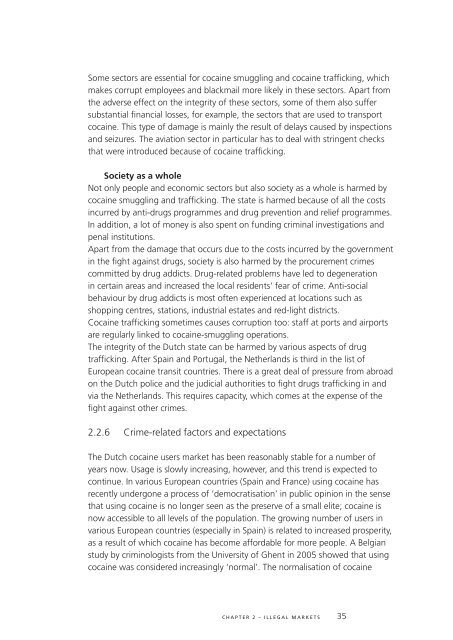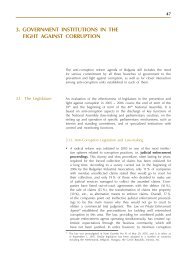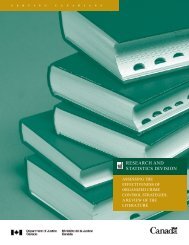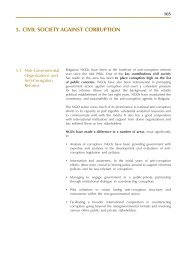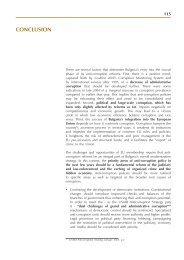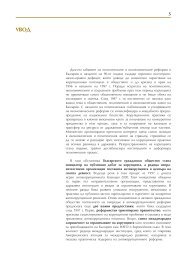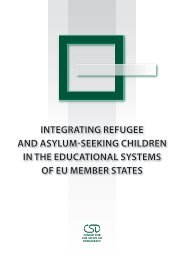National Threat Assessment 2008. Organised Crime - Politie
National Threat Assessment 2008. Organised Crime - Politie
National Threat Assessment 2008. Organised Crime - Politie
Create successful ePaper yourself
Turn your PDF publications into a flip-book with our unique Google optimized e-Paper software.
Some sectors are essential for cocaine smuggling and cocaine trafficking, which<br />
makes corrupt employees and blackmail more likely in these sectors. Apart from<br />
the adverse effect on the integrity of these sectors, some of them also suffer<br />
substantial financial losses, for example, the sectors that are used to transport<br />
cocaine. This type of damage is mainly the result of delays caused by inspections<br />
and seizures. The aviation sector in particular has to deal with stringent checks<br />
that were introduced because of cocaine trafficking.<br />
Society as a whole<br />
Not only people and economic sectors but also society as a whole is harmed by<br />
cocaine smuggling and trafficking. The state is harmed because of all the costs<br />
incurred by anti-drugs programmes and drug prevention and relief programmes.<br />
In addition, a lot of money is also spent on funding criminal investigations and<br />
penal institutions.<br />
Apart from the damage that occurs due to the costs incurred by the government<br />
in the fight against drugs, society is also harmed by the procurement crimes<br />
committed by drug addicts. Drug-related problems have led to degeneration<br />
in certain areas and increased the local residents’ fear of crime. Anti-social<br />
behaviour by drug addicts is most often experienced at locations such as<br />
shopping centres, stations, industrial estates and red-light districts.<br />
Cocaine trafficking sometimes causes corruption too: staff at ports and airports<br />
are regularly linked to cocaine-smuggling operations.<br />
The integrity of the Dutch state can be harmed by various aspects of drug<br />
trafficking. After Spain and Portugal, the Netherlands is third in the list of<br />
European cocaine transit countries. There is a great deal of pressure from abroad<br />
on the Dutch police and the judicial authorities to fight drugs trafficking in and<br />
via the Netherlands. This requires capacity, which comes at the expense of the<br />
fight against other crimes.<br />
2.2.6 <strong>Crime</strong>-related factors and expectations<br />
The Dutch cocaine users market has been reasonably stable for a number of<br />
years now. Usage is slowly increasing, however, and this trend is expected to<br />
continue. In various European countries (Spain and France) using cocaine has<br />
recently undergone a process of ‘democratisation’ in public opinion in the sense<br />
that using cocaine is no longer seen as the preserve of a small elite; cocaine is<br />
now accessible to all levels of the population. The growing number of users in<br />
various European countries (especially in Spain) is related to increased prosperity,<br />
as a result of which cocaine has become affordable for more people. A Belgian<br />
study by criminologists from the University of Ghent in 2005 showed that using<br />
cocaine was considered increasingly ‘normal’. The normalisation of cocaine<br />
chapter 2 – Illegal markets<br />
35


